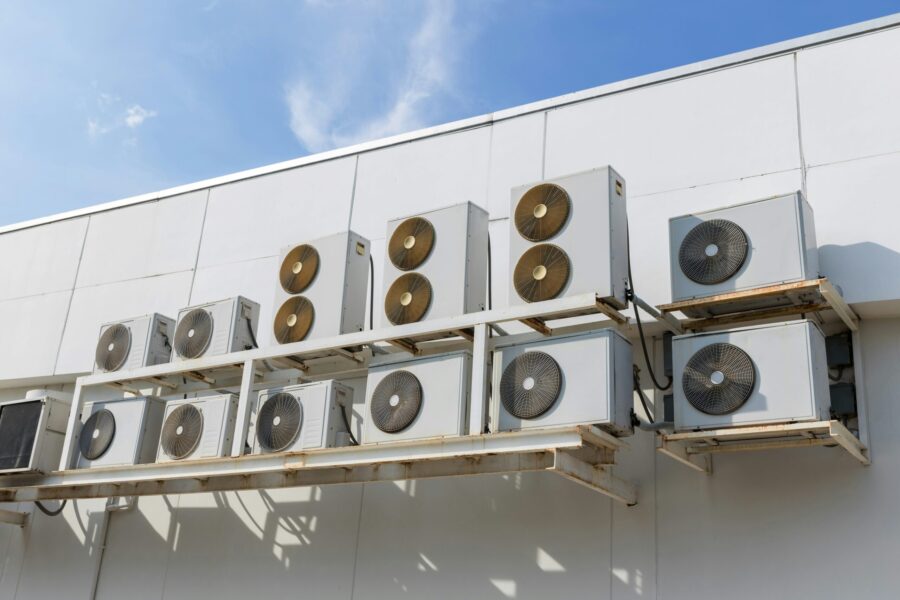Noise pollution is a common issue faced by many commercial establishments, impacting the well-being and productivity of employees, occupants, and customers. In today’s fast-paced business world, creating a quiet and peaceful environment is becoming increasingly important. As a business owner in El Cerrito, CA, you should seriously consider the role your commercial HVAC system plays in mitigating noise pollution within your facility.
The heating, ventilation, and air conditioning systems in commercial spaces come with their own set of challenges when it comes to noise control, such as the sounds generated by the equipment itself, as well as airflow noises through ducts and vents. By choosing a commercial HVAC service provider with experience in managing noise pollution, you can not only ensure the efficient and comfortable operation of your HVAC system, but also create a more peaceful and productive environment for everyone in your commercial space.
Reducing noise pollution requires a comprehensive strategy, and your HVAC systems have a significant part to play. Implementing proper noise reduction techniques and working with skilled commercial HVAC service providers, such as Thermus Mechanical, can help you create an environment conducive to focus, productivity, and relaxation for your employees and customers alike.
In the following sections, we will discuss various aspects of noise pollution in commercial spaces and how the right HVAC service provider can help businesses mitigate unwanted noise, providing a more comfortable and serene environment. By optimizing your commercial HVAC systems and incorporating noise reduction techniques, you can not only create a more pleasant atmosphere in your building but also contribute to the well-being of everyone who steps through your doors.
1. Understanding the Sources of Noise Pollution in Commercial Spaces
The first step towards reducing noise pollution in your commercial space is understanding its sources. Various elements can contribute to unwanted noise levels, including:
– Exterior noise: This includes noise from traffic, construction activities, and nearby businesses seeping into your space through walls, windows, and doors.
– Interior noise: This comprises sounds generated within the building, such as conversations, foot traffic, office equipment, and machinery.
– HVAC noise: This includes sounds created by your heating, ventilation, and air conditioning systems, such as vibrating units, airflow noises through ducts, and whirring fans.
Once you recognize the primary sources of noise pollution in your commercial space, you are better positioned to work with a professional HVAC service provider to develop a strategy that addresses these issues.
2. Incorporating Sound Insulation and Dampening Measures
An essential aspect of mitigating noise pollution in your commercial space is incorporating sound insulation and dampening measures throughout your building. This can include:
– Upgrading windows and doors to reduce exterior noise infiltration
– Installing sound dampening materials such as acoustic panels, ceiling tiles, and carpeting to absorb internal noise
– Adding soundproof barriers to create designated quiet zones
– Utilizing sound-absorbing HVAC duct liners or insulation to minimize airflow noise
A skilled commercial HVAC service provider can help you evaluate your building’s unique needs and recommend sound insulation materials and techniques to effectively reduce noise pollution in your workspace.
3. Optimizing HVAC System Design and Equipment
The design and equipment of your commercial HVAC system can play a significant role in managing noise pollution. By working closely with your HVAC service provider, you can optimize your system to minimize noise levels, including:
– Installing quieter HVAC units: Selecting quieter models and replacing outdated, noisy equipment can significantly reduce noise pollution from your HVAC systems.
– Proper equipment sizing: Ensuring your HVAC equipment is correctly sized for your space can help reduce excess noise due to overwork or strain on the system.
– Ductwork optimization: Having your ductwork professionally designed and installed with noise reduction in mind, which includes minimizing abrupt turns and appropriately sizing ducts, can help lower noise levels related to airflow.
– Utilizing sound dampening equipment: Incorporating silencers into your ductwork or installing vibration dampeners on your HVAC equipment can further help to mitigate unwanted noise.
By partnering with a knowledgeable HVAC service provider, you can ensure that your commercial space’s HVAC system operates efficiently and quietly, contributing to a more peaceful environment.
4. Regular HVAC Maintenance and Noise Monitoring
Ongoing maintenance and noise monitoring are vital to maintaining a quiet and comfortable commercial environment. Regular maintenance ensures your HVAC equipment continues to run efficiently, while monitoring detect new sources of noise pollution before they become a major concern.
Your commercial HVAC service provider should be conducting routine inspections and maintenance to keep your systems running optimally. Additionally, consider implementing a regular noise check in your commercial space to detect and address any noise issues promptly.
Conclusion
Reducing noise pollution in your commercial space is a significant investment in the comfort and productivity of everyone who occupies the building, from employees to clients. By working with seasoned professionals like Thermus Mechanical, you can benefit from a tailored approach to noise reduction that incorporates sound insulation, optimized HVAC system design, and ongoing maintenance and monitoring.
Creating a quieter and more serene environment in your commercial space will not only enhance the well-being and satisfaction of employees and customers but also contribute to the overall success of your business. To learn more about optimal commercial HVAC in El Cerrito for noise pollution, and how Thermus Mechanical can help you achieve it, contact us today.


Recent Comments